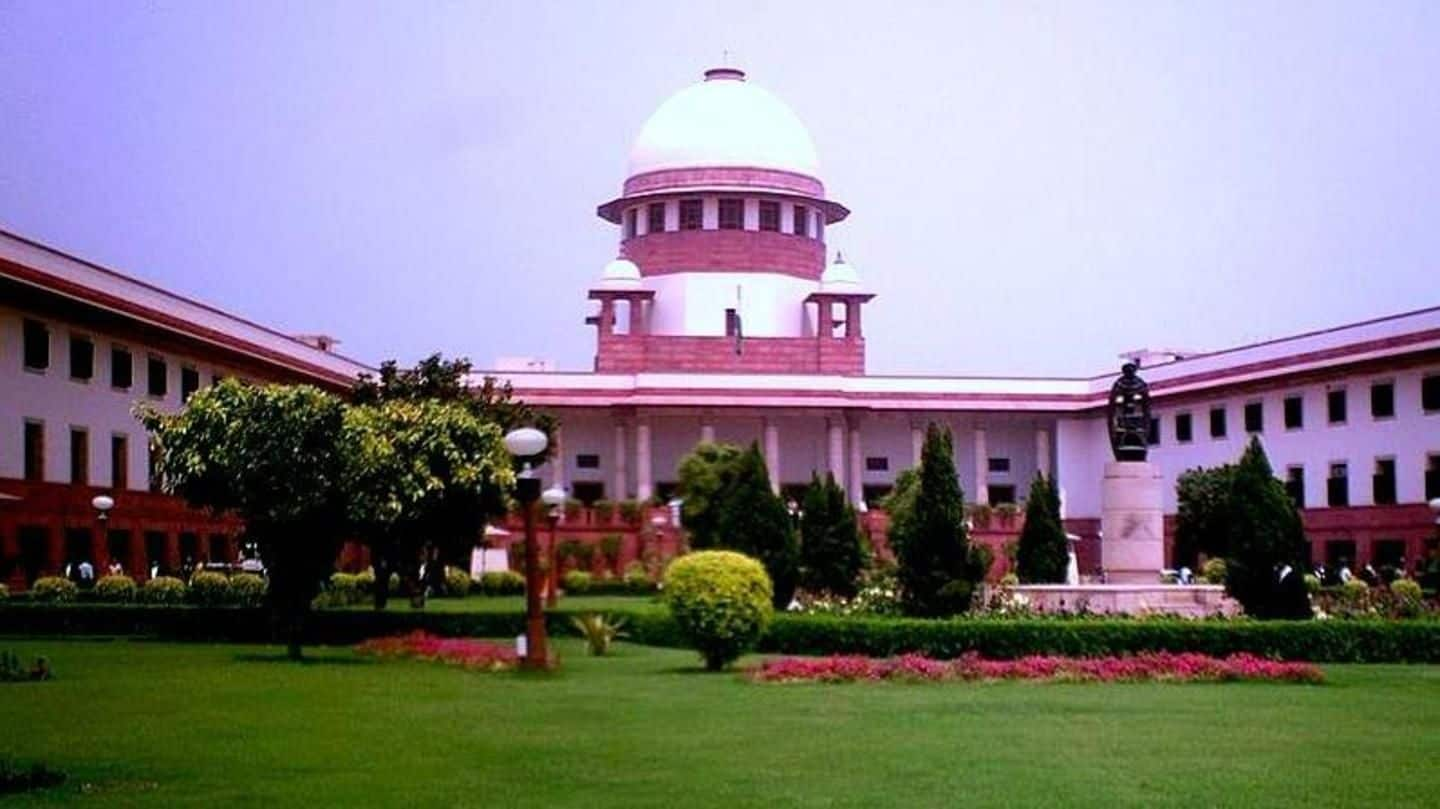
Answering 5 questions after SC's judgment on Ayodhya linked case
What's the story
By upholding the 1994 judgment pertaining to praying inside a mosque, the Supreme Court has driven the Babri Masjid-Ram Mandir dispute to a crucial state. A three-judge bench headed by Chief Justice of India didn't refer the verdict to a larger bench, clearing the way for hearings on Ayodhya dispute. The hearings will commence on October 29. Here's understanding what this judgment means.
#1
Why did court decide against referring case to larger bench?
Justice Ashok Bhushan said observations made in the previous case were in the context of the land acquisition of mosque, with respect to facts of the case. "The use of "particular significance" in Ismail Faruqui judgment is only in the context of immunity from the acquisition," he insisted. He added the present (disputed land case) will be judged on facts and Ismail Faruqui case wouldn't affect it.
#2
What is the Ismail Faruqui case of 1994?
In the 1994 Ismail Faruqui case, a five-judge Constitutional bench of the Supreme Court had noted that a mosque wasn't "an essential part of the practice of the religion of Islam". This implied "its acquisition (by the state) is not prohibited by the provisions in the Constitution of India". Muslim groups argued the 'sweeping' verdict needed to be revisited, as it will affect Babri Masjid dispute.
#3
Does today's verdict speak about possession of disputed land?
It should be noted that today's verdict doesn't translate to who will possess the disputed land. About the 1994 verdict, Muslim bodies argued this will affect the title dispute and weaken the case. But SC has made it clear it won't happen. However, this judgment could be used to argue that mosque in the disputed land is shifted elsewhere, and mandir built there.
#4
What is the Ram Janmbhoomi- Babri Masjid dispute?
The 2.77 acres of land in Ayodhya has resulted in the most politically polarizing case of the country. In December 1992, thousands of right-wing activists razed down the Babri Masjid, claiming that it was built on a temple; this temple had special significance as it was considered the birth-place of Lord Ram. The demolition of 16th-century property led to riots across the country.
#5
When will decision on disputed land be taken?
With the SC deciding against referring the 'praying in the mosque' issue to a larger bench, the hearings for Ayodhya dispute will start in October. In 2010, the Allahabad High Court had divided the disputed property, equally, among the three key players: the Sunni Waqf board, Ram Lalla and Nirmohi Akhada. This was challenged by all parties in the apex court.